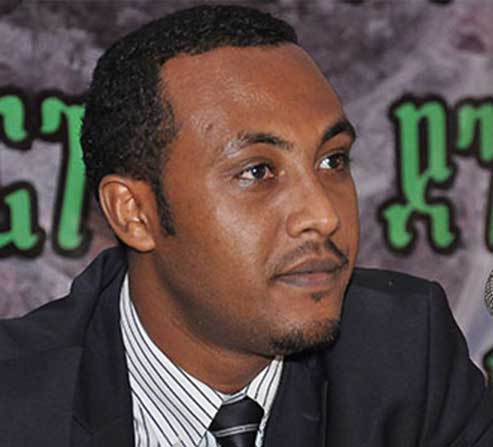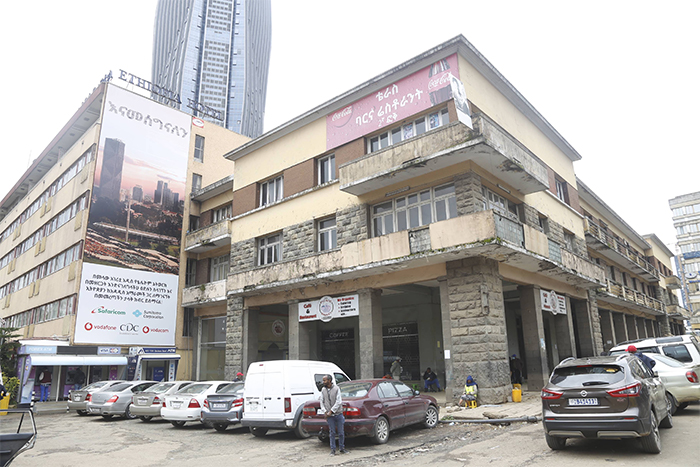
View From Arada | Mar 18,2023
Jan 12 , 2019
By Eden Sahle
Eden Sahle is founder and CEO of Yada Technology Plc. She has studied law and international economic law. She can be reached at edensah2000@gmail.com.
I spent a great deal of time in church when I was a child. Unfortunately, it was an experience that left much to be desired. There was a place where, surprisingly enough, bullying and discrimination was rife and not just by the children.
I know several people who gave up on their faith because of their experiences in religious institutions. Given that religion is held in high regard in Ethiopia, and as a measure of moral and ethical compasses, the shedding of trust of religious institutions in the eyes of the people can have negative social consequences. This is all the more crucial given that alternative secular institutions or organisations are in short supply for citizens to fall back on.
A few months back, I was able to attend a religious organisation which left me discontented. It came off as sexist and insensitive to parts of the public. It was sending the wrong message to the people that were gathered. Taken for granted, such public announcements and teachings can only do more damage than good in people’s social and personal lives.
Religious institutions should be places where people learn life-changing lessons about personal growth and support to one another. It should not be a place where matters of gender, ethnicity and politics are discussed in such a partial and inappropriate language.
Unlike what we see in Ethiopia, the Tanzanian practice is more beneficial to society. I observed a very admirable culture and secular policy where the country facilitates opportunities to create interreligious marriages and collaboration among the different ethnic groups.
When students go to college, they are made to attend a university located far from the place they grew up in to encourage societal cohesion. I was amazed to learn that the country implements the same policy even at correctional centres, keeping convicts with those who came from different parts of Tanzania. And their religious institutions have managed to create respect and collaboration among their different congregations establishing more harmonious communities than it appears to be in Ethiopia.
As can be learned from Tanzania within the social and cultural dimensions, religious institutions can play a great role in creating positive interactions, and connecting communities for a great goal. The process for the adequate fulfilling of moral values – for which many look towards their faiths for inspiration - necessitates the skilful approach of the representative institutional embodiments to realise social harmony.
This serves to develop a set of appropriate social and personal relationships and ties. Where there is a structure of reciprocal dependencies and interactions, it becomes beneficial to create a collaborative and informed society devoted to providing support and mutual respect.
In a country such as Ethiopia, where 98pc of citizens say religion is important to them - one of the highest in the world – according to a Pew Research survey, faith-based institutions should realise their role is more than providing devout teachings but also help build a society that is hospitable, respectful and moral.
They must utilise their influence to inspire the public to act better. They should be sincere, be accountable, and stress the importance of empathy in a nation divided on identity and politics. It will be constructive for everyone if they act with careful considerations regarding not only their own benefits but also the interests of others.
Apart from the inspirational function of religion in the creation of the conceptual foundations of various world-views, the basic ideas, thoughts, values and norms of the analysed dimension of religion have also been seen to imbue citizens with good moral values.
Increased attention should be given to the potential role of shared motivations, common identities and community collaborations to drive socio-economic development. Religion should offer significant protective roles against biases, providing a sense of belonging for citizens.
PUBLISHED ON
Jan 12,2019 [ VOL
19 , NO
976]

View From Arada | Mar 18,2023

Sunday with Eden | Oct 08,2022

Radar | Mar 26,2022

Fortune News | Jun 07,2020

Covid-19 | Mar 28,2020

Fortune News | Mar 17,2021

Fortune News | Jul 18,2021

Radar | Mar 25,2023

Viewpoints | May 03,2024

Fortune News | Nov 27,2021

Photo Gallery | 178233 Views | May 06,2019

Photo Gallery | 168438 Views | Apr 26,2019

Photo Gallery | 159216 Views | Oct 06,2021

My Opinion | 137056 Views | Aug 14,2021
Commentaries | Oct 25,2025

Dec 22 , 2024 . By TIZITA SHEWAFERAW
Charged with transforming colossal state-owned enterprises into modern and competitiv...

Aug 18 , 2024 . By AKSAH ITALO
Although predictable Yonas Zerihun's job in the ride-hailing service is not immune to...

Jul 28 , 2024 . By TIZITA SHEWAFERAW
Unhabitual, perhaps too many, Samuel Gebreyohannes, 38, used to occasionally enjoy a couple of beers at breakfast. However, he recently swit...

Jul 13 , 2024 . By AKSAH ITALO
Investors who rely on tractors, trucks, and field vehicles for commuting, transporting commodities, and f...

Oct 25 , 2025
The regulatory machinery is on overdrive. In only two years, no fewer than 35 new pro...

Oct 18 , 2025
The political establishment, notably the ruling party and its top brass, has become p...

Oct 11 , 2025
Ladislas Farago, a roving Associated Press (AP) correspondent, arrived in Ethiopia in...

Oct 4 , 2025
Eyob Tekalegn (PhD) had been in the Governor's chair for only weeks when, on Septembe...

Oct 25 , 2025 . By YITBAREK GETACHEW
Officials of the Addis Abeba's Education Bureau have embarked on an ambitious experim...

Oct 26 , 2025 . By YITBAREK GETACHEW
The federal government is making a landmark shift in its investment incentive regime...

Oct 29 , 2025 . By NAHOM AYELE
The National Bank of Ethiopia (NBE) is preparing to issue a directive that will funda...

Oct 26 , 2025 . By SURAFEL MULUGETA
A community of booksellers shadowing the Ethiopian National Theatre has been jolted b...